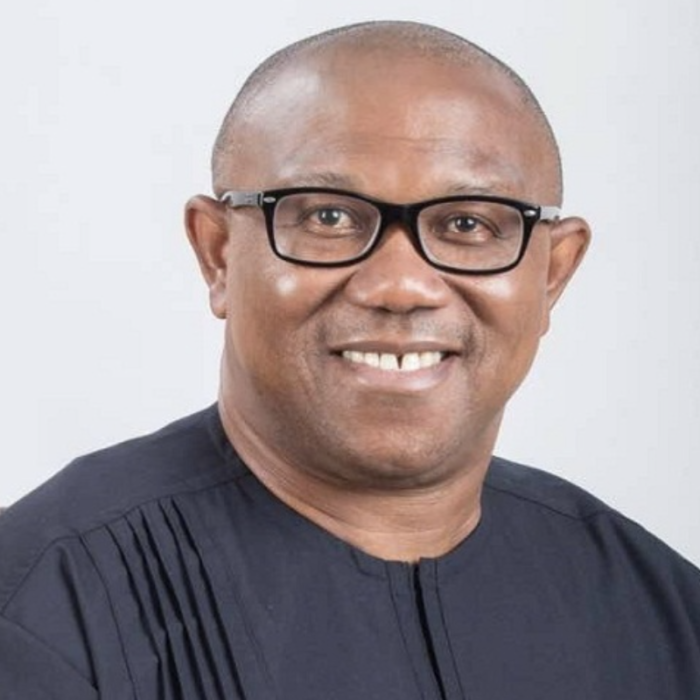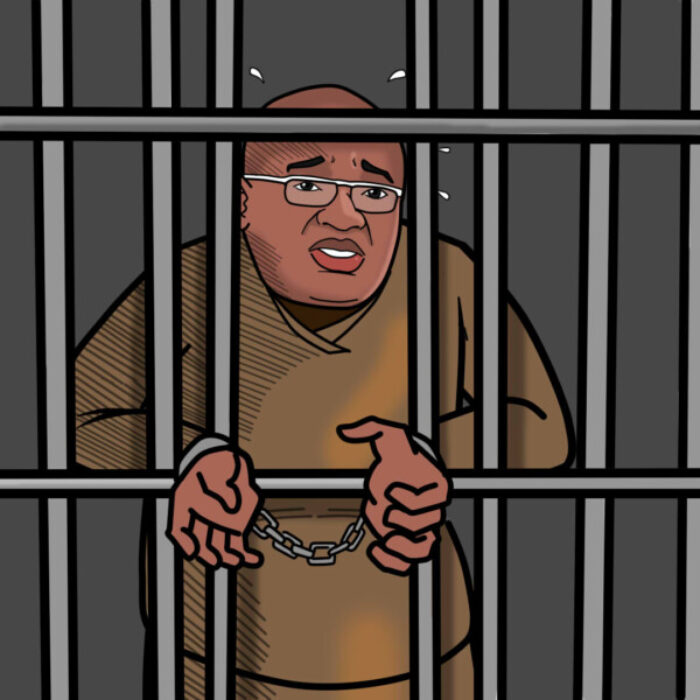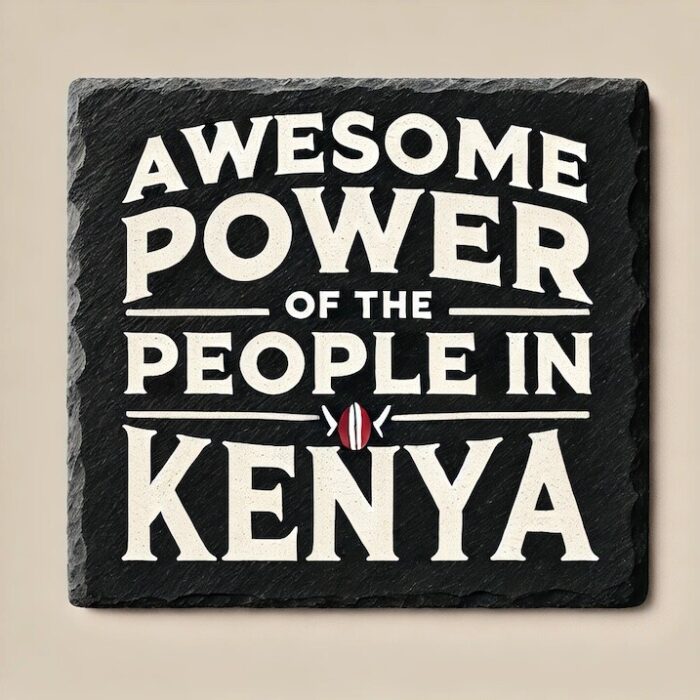By The Editorial Board
As 2024 draws to a close, Nigerians are once again confronted with an unsettling reality: a nation drifting aimlessly under the uncertain and uninspired leadership of President Bola Ahmed Tinubu.
His presidency, heralded by supporters as the dawn of a transformative era, has instead delivered chaos, inertia, suffering, and deepened despair.
This year-end editorial critically analyzes Tinubu’s administration over the past year, exposing a presidency marked by hollow leadership, economic mismanagement that has inflicted widespread suffering and starvation, and a troubling erosion of democratic principles.
Here’s how Nigerians we interviewed described Mr. Tinubu’s disastrous 2024:
1. The Grinch who Stole Christmas
2024 will forever remain the worst year and the most miserable Christmas for the majority of Nigerians, who are hungry, sick, and struggling to survive. They will also remember Tinubu as the Grinch who stole Christmas, not with a sly grin or a green mask, but with policies that crushed their hopes, emptied their pockets, and plunged them deeper into hunger and despair.
Dr. Seuss portrays the Grinch as a bitter and vengeful old man, determined to ruin the joy of others. He elaborates:
“The Grinch hated Christmas! The whole Christmas season! Now, please don’t ask why. It could be his head wasn’t screwed on just right. It could be, perhaps, that his shoes were too tight. But I think that the most likely reason of all, may have been that his heart was two sizes too small.”
Instead of bringing relief and cheer, his leadership, much like the Grinch, brought untold hardship, skyrocketing inflation, fuel hikes, and a widening wealth gap that left ordinary Nigerians suffocating in the grip of poverty. Families who once managed to celebrate even in difficult times found themselves unable to afford the basics of survival, let alone festive joy.
A whole grown chicken that cost less than ₦6,000 two years ago now sells for an astonishing ₦30,000 this Christmas—an amount far beyond the monthly income of the majority of Nigerians. How are citizens supposed to celebrate Christmas on empty stomachs? For millions of impoverished Nigerians, this was the bleakest Christmas in living memory.
Does Tinubu care? Absolutely not. Instead of offering solutions or relief, he chastised Nigerians, telling them to “manage” their hunger—a callous dismissal of their suffering. This indifference underscores the growing disconnect between his administration and the everyday struggles of the people.
While the rich feasted and celebrated in opulence, ordinary Nigerians were left grappling with starvation and despair, their hopes for even the simplest joys of Christmas crushed under the weight of Tinubu’s disastrous economic policies. His failure to address the spiraling cost of living reveals not just incompetence but a disturbing lack of empathy for the very people he swore to serve.
Unsurprisingly, for many Nigerians, Christmas in 2024 was not a season of peace and goodwill but a harsh reminder of a government utterly detached from their suffering.
Tinubu’s actions—or glaring inaction—will go down in history as a profound betrayal of trust, turning what should have been a time of hope and unity into a symbol of hopelessness. This Christmas, millions mourned not only the loss of a cherished tradition but also the fading promise of a better tomorrow.
2. PINO (President In Name Only)
A president’s most fundamental duty is to provide clear direction and decisive leadership, especially in times of crisis. Yet in 2024, as in the year before, Tinubu’s presidency has been defined by staggering ineptitude, glaring indolence, and a palpable absence—both physical and moral.
Like a deer frozen in the headlights of an oncoming disaster, his administration appears paralyzed, incapable of responding to the urgent and multiplying crises engulfing the nation. His inability to act decisively has left Nigeria leaderless, its citizens abandoned to navigate hardship and chaos on their own.
His rare public appearances and detached demeanor have fostered the perception that he is a PINO (president in name only), unwilling or unable to grasp the urgency of Nigeria’s challenges.
3. Plunderer-in-Chief
This vacuum of leadership was most glaringly evident in Tinubu’s catastrophic handling of the economy. Under his administration, Nigeria’s public debt surged from ₦26.25 trillion in 2022 to ₦121.67 trillion (NBS) by the first quarter of 2024, marking a nearly fivefold increase.
Consequently, the debt-to-GDP ratio escalated from approximately 23% in 2022 to 55% by June 2024, indicating a significant deterioration in fiscal health. Despite this alarming rise in debt, GDP growth remained sluggish, with the economy expanding by 3.46% year-on-year in the third quarter of 2024, falling short of the 6% target set by President Tinubu.
Alarmingly, a substantial portion of the 2024 budget was financed through borrowing, with the fiscal deficit projected at ₦9.18 trillion, representing about 3.9% of GDP. This reliance on debt to fund government spending has raised concerns about fiscal sustainability.
Additionally, Nigeria’s trade balance has been under pressure, with the country recording a trade deficit of $20.94 billion in 2022. While recent data on the 2024 trade balance is limited, the persistent challenges in the oil sector and import dependencies suggest that trade imbalances remain a critical issue.
Because of these figures, the economic reality for ordinary Nigerians has been dire. Stagnation, hyperinflation, skyrocketing unemployment, extreme poverty, and widespread starvation stand as the grim hallmarks of Tinubu’s tenure in 2024.
Hunger has become an omnipresent killer, with Nigerians dying of starvation by the hour. In Okija, 22 people were crushed to death in a desperate scramble for free food, a horrifying tragedy that came just days after 35 others were trampled to death in Ibadan under similar circumstances.
Across the country, a living hellscape unfolds, with thousands reportedly succumbing to starvation daily. Meanwhile, Tinubu remains detached, ensconced in the comforts of power, offering neither solutions nor solace to a suffering nation. His silence and inaction in the face of such human misery are not just failures of governance—they are moral betrayals of the highest order.
4. Divider-in-Chief
2024 will be remembered as the year the gap between Nigeria’s wealthy elite and its struggling majority widened to unprecedented levels. Tinubu’s economic policies, while rhetorically aimed at fiscal discipline, have disproportionately burdened the poor while sparing the rich.
For instance, while Nigerians endured skyrocketing food and energy prices, Tinubu’s government unveiled tax breaks and incentives for foreign investors and multinational corporations.
These policies, touted as growth drivers, have yielded little tangible benefit for the average citizen. Instead, they have reinforced the perception that Tinubu’s administration is more interested in appeasing global financial institutions than addressing domestic inequality.
The president’s silence in the face of rising unemployment and stagnant wages has been deafening. Nigeria’s youth, who comprise the majority of its population, are increasingly disillusioned, trapped in a cycle of joblessness and hopelessness. The poverty rate is projected to exceed 40% by the end of 2024, up from 38% in 2023. Tinubu’s lack of a coherent strategy to address this crisis has left the nation’s most dynamic demographic feeling abandoned and betrayed.
5. BAT (Brutal Authoritarian Tormentor)
Beyond economic failures, Tinubu’s presidency has also presided over the systematic erosion of Nigeria’s democratic institutions. In 2024, security agencies were frequently deployed to intimidate opposition figures and suppress dissent, signaling a worrying drift toward authoritarianism.
Journalists, activists, and ordinary citizens who dared to criticize the government faced harassment and, in some cases, detention.
To suppress protests and silence dissent, children as young as 12 were thrown into overcrowded prisons, often held for months without bail. Disturbing reports surfaced of widespread torture, with some detainees alleging sexual assault during their imprisonment.
Anyone who dares to criticize the government is labeled as unpatriotic at best and a traitor at worst. Journalists and social critics are relentlessly targeted, often silenced through threats and “lawfare” disguised as defamation lawsuits.
These gross violations of human rights persisted until sustained international pressure forced Tinubu’s government to take action. Such policies reveal a disturbing disregard for the fundamental rights and dignity of young Nigerians, demanding accountability and urgent reform.
This crackdown on free expression reflects a government more concerned with consolidating power than fostering democratic accountability. Tinubu, once a champion of democratic ideals during Nigeria’s pro-democracy struggles, has now become a symbol of their betrayal.
The judiciary, long seen as a bastion of impartiality, has also come under fire for its perceived complicity in upholding controversial policies and electoral outcomes. The failure to address widespread concerns over the integrity of the 2023 elections and the recent 2024 governorship elections have further eroded public trust in Nigeria’s democratic process, casting a long shadow over the credibility of Tinubu’s courts.
6. Compassionless Despot
Perhaps the most glaring failure of 2024 has been Tinubu’s inability to connect with the Nigerian people. His administration has governed with an air of detachment, issuing lofty proclamations while ignoring the lived realities of citizens.
When Nigerians took to the streets to protest rising costs and declining living standards, Tinubu responded with silence or, worse, heavy-handed tactics to stifle dissent. His lack of empathy has become a defining feature of his presidency, alienating the very people he was elected to serve.
A leader like Tinubu, who harbors disdain for the very people he is entrusted to serve, has no claim to the position he holds. True leadership demands empathy, respect, and an unwavering dedication to the well-being of the populace.
A leader fueled by contempt or indifference toward their citizens, as President Tinubu has repeatedly shown, cannot foster trust, unity, or progress. Instead, such leadership weakens the very foundation of the nation, exacerbating divisions and jeopardizing its future.
The consequences of Tinubu’s failures in 2024 are not just political or economic; they are deeply human. Families struggling to afford basic necessities, communities living in fear of escalating insecurity, and youth seeing their futures dimmed—all are casualties of a presidency that has failed to rise to the occasion.
Looking Ahead
As the nation closes the chapter on a turbulent year, Nigerians are left grappling with critical questions: What does the future hold? Can Tinubu rise to the occasion in 2025, or will his administration remain mired in its own failures? Given his entrenched resistance to change, the prospect of progress appears bleak as long as Tinubu remains in power.
What is clear is that the status quo cannot hold. Nigeria stands at a crossroads, and its citizens are increasingly demanding more from their leaders. The challenges of insecurity, endemic corruption, economic stagnation, and democratic backsliding require bold, decisive action—qualities that Tinubu has yet to demonstrate.
Across the globe, unfit presidents are being removed from office through democratic elections, impeachment proceedings, or peaceful mass uprisings. These events highlight the undeniable power of accountability in confronting poor leadership and safeguarding democracy.
Recent examples include Peru’s Pedro Castillo, who was impeached and arrested for attempting to dissolve Congress; Sri Lanka’s Gotabaya Rajapaksa, forced to resign after mass protests against economic collapse; Sudan’s Omar al-Bashir, toppled by a popular revolution after decades of oppressive rule; and South Korea’s Park Geun-hye, impeached and ousted due to corruption scandals exposed by relentless public protests.
Under the Tinubu administration, where elections are allegedly rigged, and the legislature and judiciary have been captured, Nigeria faces an unprecedented democratic crisis. The institutions meant to safeguard the people’s rights have been subverted, leaving the nation on the brink of authoritarianism.
In the face of this systemic collapse, the only viable solution lies in the courage and collective will of the people. It is through nonviolent mass mobilization and unwavering determination that Nigerians can challenge the status quo, dismantle bad leadership, and reclaim their future. When the people rise and declare, “enough is enough—we will not take it anymore,” they become an unstoppable force, capable of reshaping the course of history.
But will Nigerians summon the courage to rise together? Will they stand firm when their oppressors unleash AK-47s to silence their voices with bloodshed? Will they remain undeterred when betrayal lurks within, as some among them accept bribes from their tormentors? Will they resist when tribe and religion are weaponized to divide them, or when the echoing beat of the drums matches the defiant rhythm of their hearts?





